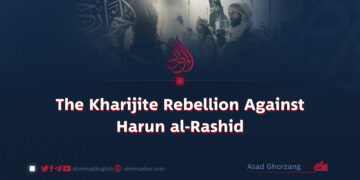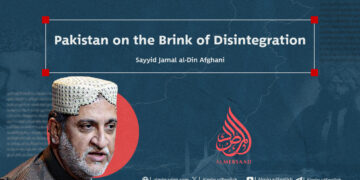Part 1
Author: Abu Suhaib
Dear readers, to clarify and elaborate on the topic at hand, I wish to explore several key themes that will help illuminate our discussion more clearly. The discussion is organized under the following headings:
1. Definition and Introduction of the Islamic System
2. Names of the Islamic System
3. The Necessity of an Emirate for the Islamic System
4. Conditions for an Islamic Emirate within an Islamic System
5. Common Misconceptions About the Islamic Emirate and Their Clarifications
1. Definition of the Islamic System
An Islamic system refers to a governance structure whose framework, purpose, legislation, and implementation—whether in foundational or subsidiary matters—are fully aligned with the principles of Islamic Sharia. In simpler terms, it is the enforcement of the divine commandments of Allah Almighty on His earth, in accordance with the methodology of the Prophet Muhammad (PBUH).
This implies that such a system must be:
– Established and maintained by Muslims themselves
– Committed to implementing Islamic Sharia to the fullest extent possible
– Built with the express intention of elevating the word of Allah
– Governed through the principles of amr bil-maʿrūf (enjoining good) and nahy ʿanil-munkar (forbidding evil)
Structured upon the foundational principles upon which a legitimate Islamic system must rest
These essential principles are as follows:
Foundational Principles of the Islamic System
First Principle: Qualified Muslim Leadership
The leader of the Islamic system must be a Muslim who possesses the necessary Sharia-based qualifications for leadership. If the leader is not a Muslim or lacks legitimate religious eligibility, the proper implementation of an Islamic system cannot be expected under their authority.
Second Principle: Sovereignty of Islamic Sharia
The supreme source and reference for all legislation and governance must be Islamic Sharia. The legal system must be Islamic both in origin and in objective, with no room for man-made ideologies or external legal systems that contradict divine guidance.
Third Principle: Centralization and Unity
The Islamic system must be unified and centralized. It cannot be fragmented, coalition-based, or founded upon ethnic, ideological, partisan, or sectarian divisions. All individuals participating in this system must be selected based on merit and eligibility, not on identity politics. The system must embody commitment to the Islamic homeland and the global Muslim Ummah.
Fourth Principle: Shura (Consultation)
Consultation (shūrā) must be conducted with individuals who possess the proper qualifications. However, Shura is only applicable in non-explicit (i.e., ghayr manṣūṣ) and non-ijtihadi matters. In cases where clear Quranic evidence (naṣṣ) exists, Shura holds no authority. Where scholarly reasoning (ijtihād) is required, such matters must be referred to qualified Islamic scholars.
Fifth Principle: Preservation of the Objectives of Sharia
A legitimate Islamic system must protect the five higher objectives (maqāṣid) of Sharia:
– Preservation of religion (ḥifẓ al-dīn)
– Preservation of human life (ḥifẓ al-nafs)
– Preservation of intellect (ḥifẓ al-ʿaql)
– Preservation of honor and dignity (ḥifẓ al-ʿirḍ) – Preservation of wealth (ḥifẓ al-māl)
In the forthcoming sections, we shall explore the traditional names of the Islamic system, the indispensable role of the Emirate in its proper functioning, the conditions required for an Islamic Emirate to take form under an Islamic System, and finally, a critical examination of the common doubts and objections raised against the Islamic Emirate—with reasoned responses based on Sharia and history.



















































